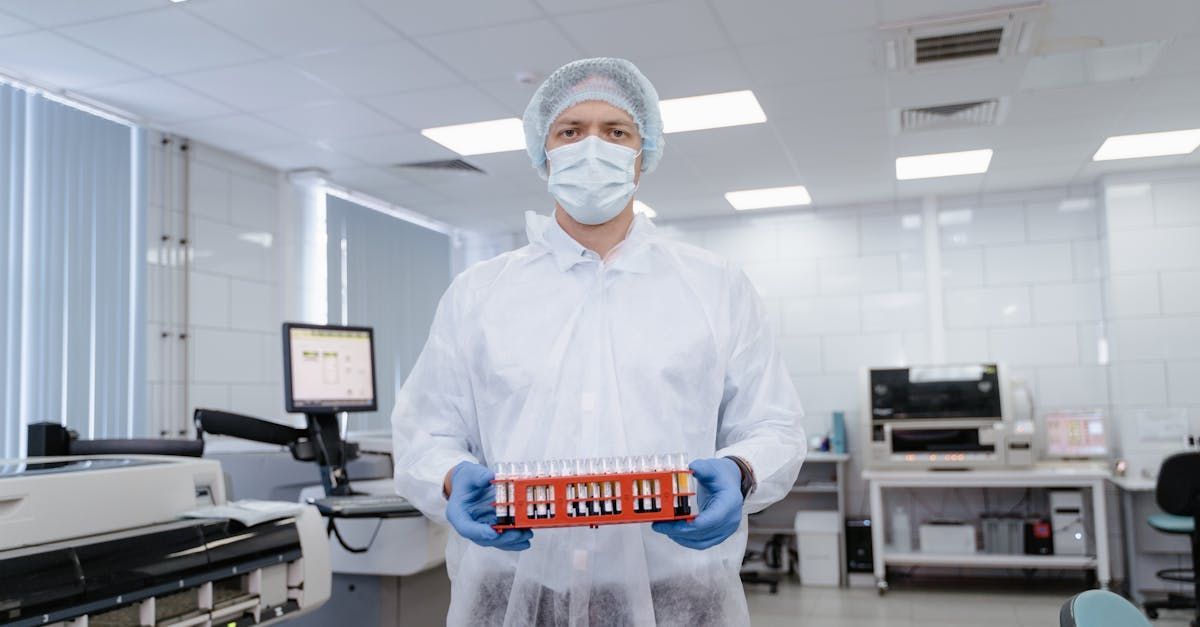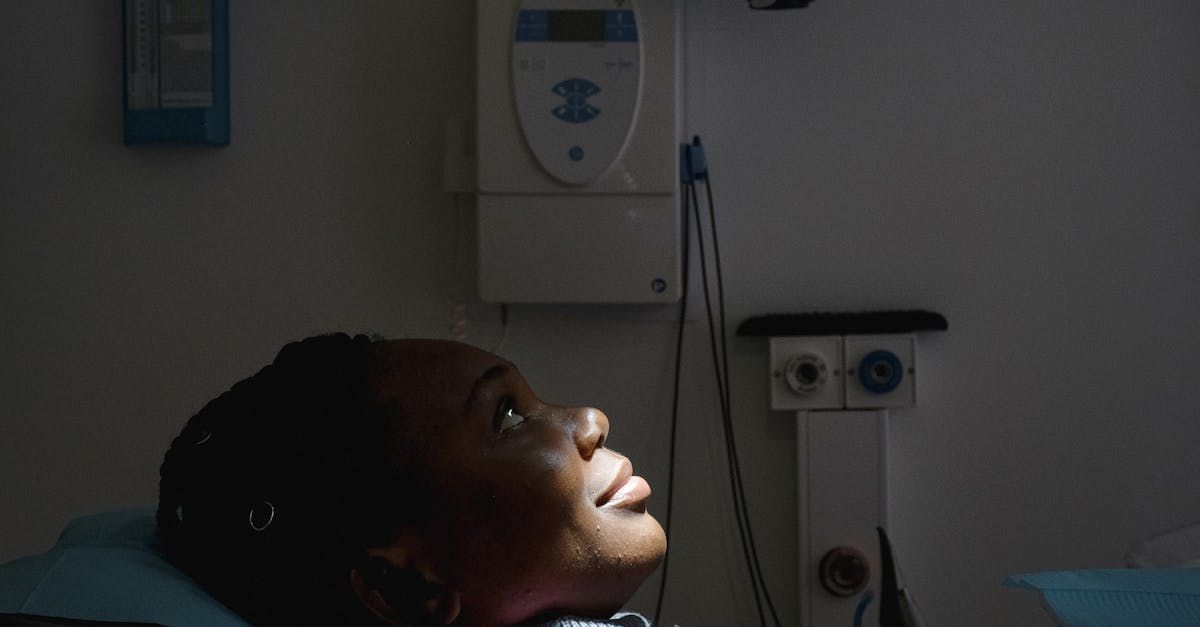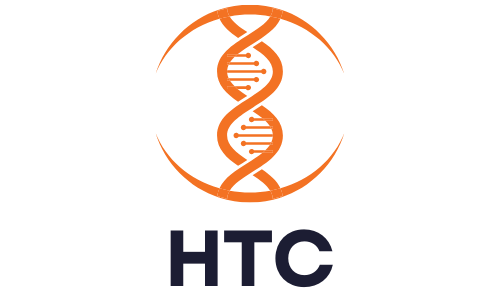Notable Labs Diagnostic Power Saves Lives
Notable Labs is revolutionizing cancer treatment with its Predictive Precision Medicine Platform (PPMP), a groundbreaking technology that simulates therapies and predicts patient responses. This clinical-stage company identifies responsive patients before treatment, accelerating drug development across various cancer types. By expanding PPMP's reach, Notable Labs aims to lead in precision medicine, offering tailored treatments for each patient. Notable Labs' cutting-edge diagnostic platform showcases remarkable potential in revolutionizing pediatric leukemia treatment. With an impressive 95% prediction accuracy, demonstrated by Stanford paper, this innovative technology promises to transform cancer care for young patients.
Precision diagnostics are transforming pediatric leukemia treatment by utilizing advanced technologies like next-generation sequencing to identify specific genetic mutations and molecular markers. This detailed genomic profiling enables more accurate risk stratification, targeted therapies, and personalized treatment plans. For example, identifying Philadelphia chromosome-positive acute lymphoblastic leukemia has led to successful tyrosine kinase inhibitor use. Precision diagnostics also aid in monitoring minimal residual disease, predicting treatment response, and detecting early relapse. This approach enhances treatment efficacy, minimizes unnecessary toxicities, and potentially improves survival rates and quality of life for young leukemia patients.
A groundbreaking Stanford study has unveiled a novel approach to precision medicine for myelodysplastic syndromes (MDS) and acute myeloid leukemia using ex vivo drug sensitivity screening (DSS). This fully automated platform, employing high-throughput flow cytometry, was evaluated in 54 patients with newly diagnosed or treatment-refractory myeloid neoplasms.
The study assessed sensitivity to 74 FDA-approved or investigational drugs and 36 combinations, revealing heterogeneous drug response patterns. Distinct patient clusters emerged, showing differential sensitivity to various drug classes, including hypomethylating agents (HMAs), anthracyclines, and kinase inhibitors. Notably, synergy between HMAs and venetoclax was demonstrated. In a prospective feasibility study of 21 HMA-refractory patients, the platform delivered results within a median of 15 days, informing personalized therapy decisions. The DSS platform showcased impressive predictive accuracy, with a positive predictive value of 0.92 and overall accuracy of 0.85. By rapidly identifying effective therapies tailored to each patient's unique disease profile, this approach offers new hope for patients refractory to standard treatments, potentially transforming the landscape of personalized medicine in hematological malignancies.
Notable Labs leverages artificial intelligence and machine learning to revolutionize precision medicine in drug development. Their PPMP generates extensive datasets from patient samples, particularly in leukemia, to predict drug efficacy with greater accuracy than traditional methods. By focusing on measuring cancer response rather than molecular aberrations, Notable's AI-driven approach can navigate complex datasets without prior knowledge of specific cellular biology. This method has shown success in predicting responses to drug combinations like venetoclax with decitabine in Acute Myeloid Leukemia at the 2023 American Association for Cancer Research (AACR) Annual Meeting held in Orlando, Florida from April 14-19, 2023.
The company showcased the platform's ability to accurately predict patient responses to acute myeloid leukemia (AML) treatments, particularly venetoclax plus decitabine (VenDec). Using an enhanced machine learning approach, Notable's PPMP achieved 100% accuracy in predicting clinical responses to VenDec treatment. This presentation was part of Notable's fourth successful validation study of their platform, demonstrating its potential to guide personalized treatment decisions and improve outcomes for AML patients. The AACR Annual Meeting is a significant event in the cancer research community, bringing together scientists, clinicians, and other professionals to share the latest advances in cancer science and medicine. Notable's presentation at this prestigious conference highlights the growing importance of AI-driven approaches in precision oncology and drug development. The technology's effectiveness lies in its ability to capture patient heterogeneity, potentially leading to higher response rates, better outcomes, and more efficient drug development processes.
Case Study
In a notable case involving a Phase 2a trial for relapsed/refractory acute myeloid leukemia (R/R AML), Notable Labs' PPMP demonstrated its transformative potential. The trial focused on the drug fosciclopirox, involving 18 heavily pre-treated patients. Notable's PPMP accurately predicted that none of the patients would achieve a complete response to the treatment. This prediction was validated as none of the patients reached a complete response, though two patients managed to maintain stable disease for over four months.
This precise prediction by PPMP was crucial as it allowed clinicians to make informed decisions, potentially avoiding ineffective treatments and focusing on alternative therapeutic strategies. The platform's ability to bio-simulate cancer treatments and predict patient responses before actual administration represents a significant advancement in personalized medicine. By identifying non-responders early, Notable's technology helps in fast-tracking clinical development and improving patient outcomes.
The success of PPMP in this trial underscores its potential to revolutionize cancer treatment by providing a targeted, de-risked approach to drug development. This case exemplifies how Notable's innovative platform can lead to more efficient and effective treatment plans, ultimately enhancing the quality of care for patients with challenging conditions like R/R AML.
Notable Labs' PPMP has significantly impacted treatment outcomes and patient survival, particularly in AML. By leveraging artificial intelligence and machine learning, PPMP accurately predicts patient responses to specific therapies, enabling personalized treatment plans. As previously explained, in a Phase 2a trial for relapsed/refractory AML, PPMP predicted that none of the patients would achieve a complete response, which was confirmed by the trial results. This precise prediction allowed clinicians to avoid ineffective treatments and focus on alternative strategies, improving patient care and accelerating drug development. The platform's high accuracy in predicting responses has led to higher response rates, better patient outcomes, and more efficient clinical trials, demonstrating its potential to revolutionize precision oncology.
Market Challenge
Notable Labs has chosen not to directly commercialize their PPMP as a standalone product, instead opting for a strategic approach that leverages the platform's capabilities to enhance drug development. The company's focus is on using PPMP to guide their own drug development programs and partnerships, rather than selling the platform as a service.
This decision aligns with Notable's vision to be a "clinical-stage platform therapeutics company" rather than a technology provider. By utilizing PPMP to identify and develop promising drug candidates, Notable aims to create greater value and impact in the pharmaceutical industry. This strategy allows them to:
1. Fast-track clinical development of selected compounds
2. Reduce risks associated with drug development
3. Improve patient outcomes by targeting responsive populations
Notable's approach with volasertib, their lead drug asset, exemplifies this strategy. By using PPMP to enrich study populations for likely responders, they aim to boost clinical response rates and enhance patient outcomes while reducing development time and costs.
This targeted, de-risked in-licensing strategy leverages PPMP's predictive power to maximize the medical impact and commercial value of drug candidates, potentially revolutionizing traditional drug development processes.
Notable Labs' PPMP is pioneering potentially life-saving assays by utilizing high-throughput flow cytometry and machine learning to predict patient responses to cancer treatments. This platform tests a wide array of drugs on a patient's own cancer cells, providing oncologists with tailored treatment options that can be implemented swiftly. The collaboration with IntelliCyt enhances this capability by integrating immune profiling in physiologically relevant ex-vivo microenvironments, ensuring clinical translation of lab results. Future directions for Notable Labs include expanding the PPMP's reach across various cancers and therapeutic modalities, continually refining its predictive accuracy to revolutionize personalized cancer treatment
Conclusion
Notable Labs' PPMP stands poised to revolutionize pediatric leukemia treatment, particularly for rare forms like JMML. By harnessing AI and high-throughput screening, PPMP accurately predicts patient responses, enabling tailored therapies that could dramatically improve survival rates while minimizing side effects. This game-changing approach aims to replace traditional trial-and-error methods with data-driven precision.
Looking ahead, Notable Labs envisions a future where personalized cancer treatment becomes the gold standard. Their platform could accelerate drug development, streamline clinical trials, and usher in a new era of targeted oncology. As this technology evolves, it promises to transform cancer care into a highly effective, individualized discipline, offering hope to countless patients and their families.
Additional Data Points
Pediatric Cancer and Leukemia Statistics
Estimated 9,620 children under 15 will be diagnosed with cancer in the U.S. in 2024
Leukemia accounts for nearly one-third of pediatric cancer cases
Childhood leukemia remains rare overall
Types of Pediatric Leukemia
- Acute Lymphoblastic Leukemia (ALL):
Most common type, ~75% of cases
Peak incidence between ages 2-5
- Acute Myeloid Leukemia (AML):
~15-20% of cases
More evenly distributed across childhood
- Juvenile Myelomonocytic Leukemia (JMML):
Rare, 1.2 cases per million children
Primarily affects children under 4 years old
- Chronic Myeloid Leukemia (CML):
Uncommon in children
More prevalent in teens than younger children
Survival Rates and Challenges
- ALL has the highest survival rates
- JMML: 5-year survival rate of about 50%
- CML: Improved outcomes with newer targeted therapies
- Rare leukemias face challenges:
Delayed diagnosis due to vague symptoms
Limited treatment options
Need for intensive therapies with potential long-term side effects
Difficulty conducting large clinical trials
References
1: Precision diagnostics in children. (2023) Cambridge Prisms: Precision Medicine
2: Precision-guided treatment in high-risk pediatric cancers. (2024) Nature
3: Precision Medicine for Childhood Cancer: Current Limitations and Future Perspectives. (2024) JCO Precision Oncology
4: Philadelphia chromosome–like acute lymphoblastic leukemia. (2017) Blood
5: Precision diagnostics in chronic lymphocytic leukemia: Past, present and future. (2023) Frontiers in Oncology
6: Tests for Childhood Leukemia. (2019) American Cancer Society
7: Ex vivo drug screening defines novel drug sensitivity patterns for informing personalized therapy in myeloid neoplasms. (2020) Blood Advances
8: Notable Labs - Translating AI to real-world outcomes: Unlocking the future of drug development at Notable Labs. Notable Labs
9: Notable Reports Predictive Precision Medicine Platform (PPMP) Accurately Predicted Fosciclopirox Trial Outcome. Notable Labs
10: Notable Advances Volasertib Phase 2 Program Utilizing Proprietary Predictive Precision Medicine Platform-Guided Enrollment . Notable Labs
11: Notable Labs Enters into a Collaboration Agreement with IntelliCyt. (2016) Sartorius
12: Notable Labs Closes Merger Transaction With VBL Therapeutics. Notable Labs
13: Cancer Stat Facts: Childhood Leukemia (Ages 0–19). SEER
14: Key Statistics for Childhood Leukemia. (2023) American Cancer Society
15: Juvenile Myelomonocytic Leukemia. (2017) The National Organization for Rare Disorders (NORD)
16: Survival Rates for Childhood Leukemias. (2019) American Cancer Society
17: What are some potential benefits of precision medicine and the Precision Medicine Initiative?. MedlinePlus
18: Personalized medicine could transform healthcare. (2017) Biomedical Reports
19: Platform trials. (2023) Therapie, Elsevier
20: 5 Benefits of Precision Medicine. (2020) Reprocell
21: What Is Precision or Personalized Medicine, and How Can Healthcare Organizations Achieve It?. (2022) HealthTech Magazine
22: Platform trials: the future of medical research?. (2023) The Lancet Respiratory Medicine
23: Key Statistics for Childhood Cancers. (2024) American Cancer Society
About the Author
Dr. Ahmed Donia was awarded a postdoctoral research fellowship at the Institute for Water and Wastewater Technology, Durban University of Technology, South Africa. He has a Ph.D. in Microbiology and Immunology from the Department of Biosciences, COMSATS University Islamabad, Islamabad campus, Pakistan. Dr Donia is an awardee of the TWAS (The World Academy of Sciences) full-time Ph.D. Fellowship. His Ph.D. research focused on SARS-CoV-2/COVID-19. His Ph.D. thesis title was "Environmental Surveillance to Immunosurveillance & Rapid Approaches for Detection of SARS-CoV-2." Dr Donia published many original and novel papers in internationally peer-reviewed journals. He is a top-rated plus medical freelancer (writer and researcher) on Upwork. He represents the top 3% of performers on Upwork. He worked as a medical writer and scientific reviewer board member at AZoLifeSciences, which is built on the 15-year pedigree of News-Medical, one of the world’s leading medical and life science news hubs.
Disclaimer
The content of these blogs reflects the research and opinions of the individual authors and does not necessarily represent the views or positions of Notable Labs or its affiliates. The information provided is for educational and informational purposes only and should not be construed as medical, legal, or financial advice.
Notable Labs makes no representations as to the accuracy, completeness, or validity of any information in these blogs and will not be liable for any errors, omissions, or any losses, injuries, or damages arising from their use.
These blogs may reference third-party research, studies, or resources. Notable Labs does not endorse or assume responsibility for the content or practices of these third parties. Any reliance on the information provided is at the reader's own risk.
For biotechnology and pharmaceutical content, note that ongoing research and clinical trials may change the context and results discussed. Always refer to the latest research and guidelines from reputable sources.










